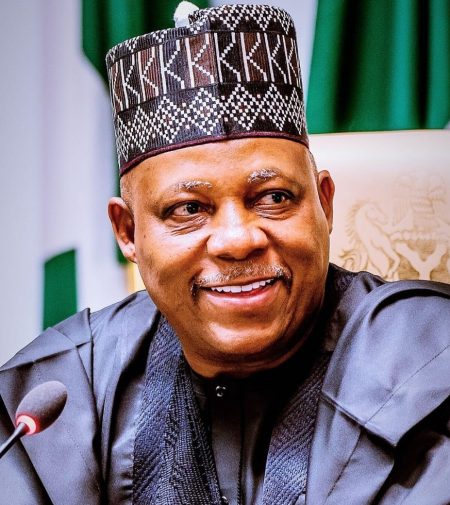 17 January 2013, Reuters, ALGIERS – Algeria said several hostages were killed on Thursday when its forces stormed a remote desert gas plant occupied by Islamist militants in retaliation for French intervention in Mali, and local sources said six foreigners were among the dead.
17 January 2013, Reuters, ALGIERS – Algeria said several hostages were killed on Thursday when its forces stormed a remote desert gas plant occupied by Islamist militants in retaliation for French intervention in Mali, and local sources said six foreigners were among the dead.
Amid reports of many more casualties in one of the biggest international hostage crises in decades, Western leaders expressed anger they had not been consulted before the operation and scrambled for word of their citizens. Some eight hours after the army assault began, Algerian state media said it was over.
Americans, Britons, Norwegians, French, Romanians and an Austrian, were among those taken, their countries said.
Algeria said its troops had been forced to act to free them due to the “diehard” attitude of their captors.
“When the terrorist group insisted on leaving the facility, taking the foreign hostages with them to neighboring states, the order was issued to special units to attack the position where the terrorists were entrenched,” the government spokesman, Communication Minister, Mohamed Said told the state news agency.
The standoff began when gunmen calling themselves the Battalion of Blood stormed the natural gas facility early on Wednesday morning. They said they were holding 41 foreigners and demanded a halt to a French military operation against fellow al Qaeda-linked Islamist militants in neighboring Mali.
Said said the military operation, which Western officials were told had begun around noon (6:00 a.m. EST) on Thursday, resulted in “the liberation of a large number of hostages and the destruction of a large number of terrorists”.
The raid increased fears jihadist militants could launch further attacks in Algeria, a vast desert country with large oil and gas reserves that is only just recovering from a protracted conflict with Islamist rebels during the 1990s which cost an estimated 200,000 lives.
A local source told Reuters six foreign hostages were killed along with eight captors when the Algerian military fired on a vehicle being used by the gunmen.
He said 40 Algerians and three foreigners were freed by the army as it continued its operation into Thursday evening. An Algerian security source said earlier that 25 foreign hostages had escaped.
Algeria’s official APS news agency said about half the foreign hostages had been freed and about 600 Algerian workers at the site, under less tight guard, had managed to escape.
Militants knew their way around
In a rare eyewitness account of Wednesday’s raid, a local man who had escaped from the facility told Reuters the militants appeared to have good inside knowledge of the layout of the complex and used the language of radical Islam.
“The terrorists told us at the very start that they would not hurt Muslims but were only interested in the Christians and infidels,” Abdelkader, 53, said by telephone from his home in the nearby town of In Amenas. “We will kill them, they said.”
Mauritanian agency ANI and Qatar-based Al Jazeera said that 34 of the captives and 15 of their captors had been killed when government forces fired from helicopters at a vehicle.
Those death tolls, far higher than confirmed by the local source, would contradict the reports that large numbers of foreigners escaped alive. On Thursday evening, ANI said it had lost its previously regular contact with the kidnappers.
Britain and Norway, whose oil firms BP and Statoil run the plant jointly with the Algerian state oil company, said they had been informed by the Algerian authorities that a military operation was under way.
British Prime Minister David Cameron said people should prepare for bad news about the hostages. He earlier called his Algerian counterpart to express his concern at what he called a “very grave and serious” situation, Cameron’s spokesman said.
“The Algerians are aware that we would have preferred to have been consulted in advance,” the spokesman added.
Norwegian Prime Minister Jens Stoltenberg said he had been told by his Algerian counterpart the action had started at around noon. He said they had tried to find a solution through the night, but that it had not worked.
“The Algerian prime minister said they felt they had no choice but to go in now,” he said.
Raising the stakes
The incident dramatically raises the stakes in the French military campaign in neighboring Mali, where hundreds of French paratroopers and marines are launching a ground offensive against Islamist rebels after air strikes began last week.
“What is happening in Algeria justifies all the more the decision I made in the name of France to intervene in Mali in line with the U.N. charter,” French President Francois Hollande said, adding that things seemed to have taken a “dramatic” turn and he was still seeking details.
He said earlier that an unspecified number of French nationals were among the hostages. A French national was also among the hostage takers, a local source told Reuters. A large number of people from the former French colony live in France.
Algerian Interior Minister Daho Ould Kablia said the kidnappers were led by Mokhtar Belmokhtar, a veteran Islamist guerrilla who fought in Afghanistan and set up his own group in the Sahara after falling out with other local al Qaeda leaders.
A holy warrior-cum-smuggler dubbed “The Uncatchable” by French intelligence and “Mister Marlboro” by some locals for his illicit cigarette-running business, Belmokhtar’s links to those who seized towns across northern Mali last year are unclear.
A local source told Reuters the hostage takers had blown up a petrol filling station at the plant.
Numbers Unconfirmed
The precise number and nationalities of foreign hostages could not be confirmed, with some countries reluctant to release information that could be useful to the captors.
Britain said one of its citizens was killed in the initial storming on Wednesday and “a number” of others were held.
The militants had said seven Americans were among their hostages. The White House said it believed Americans were among those held but U.S. officials could not confirm the number. “This is an ongoing situation and we are seeking clarity,” White House spokesman Jay Carney told reporters, expressing concern about the reported loss of lives.
Statoil said it had no word on nine of its Norwegian staff who had been held but that three Algerian employees were now free. BP said some of its staff were held but would not say how many or their nationalities.
Japanese media said five workers from Japanese engineering firm JGC Corp. were held, a number the company did not confirm. Vienna said one hostage was Austrian, Dublin said one Irish hostage had been freed and Bucharest said an unspecified number of those held were Romanian.
BP, Statoil and Spanish oil company Cepsa all said they had begun to evacuate personnel from elsewhere in Algeria, an OPEC member.
Hollande has received public backing from Western and African allies who fear that al Qaeda, flush with men and arms from the defeated forces of Libya’s Muammar Gaddafi, is building a desert haven in Mali, a poor country helpless to combat fighters who seized its northern oasis towns last year.
However, there is also some concern in Washington and other capitals that the French action in Mali could provoke a backlash worse than the initial threat by militants in the remote Sahara.
The militants, communicating through established contacts with media in neighboring Mauritania, said on Wednesday they had dozens of men armed with mortars and anti-aircraft missiles in the compound and had rigged it with explosives.
They condemned Algeria’s secularist government for letting French warplanes fly over its territory to Mali and shutting its border to Malian refugees.
The attack in Algeria did not stop France from pressing on with its campaign in Mali. It said on Thursday it now had 1,400 troops on the ground in Mali, and combat was under way against the rebels that it first began targeting from the air last week.
The French action last week came as a surprise but received widespread international support in public. Neighboring African countries planning to provide ground troops for a U.N. force by September have said they will move faster to deploy them.
Nigeria, the strongest regional power, sent 162 soldiers on Thursday, the first of an anticipated 906.
A day after launching the campaign in Mali, Hollande also ordered a failed rescue in Somalia on Saturday to free a French hostage held by al Qaeda-linked al Shabaab militants since 2009. Al Shabaab said on Thursday it had executed hostage Denis Allex. France said it believed he died in the rescue.
(Additional reporting by Ali Abdelatti in Cairo, Gwladys Fouche in Oslo, Mohammed Abbas in London and Padraic Halpin in Writing by Peter Graff, Giles Elgood and Philippa Fletcher; Editing by Alastair Macdonald)



